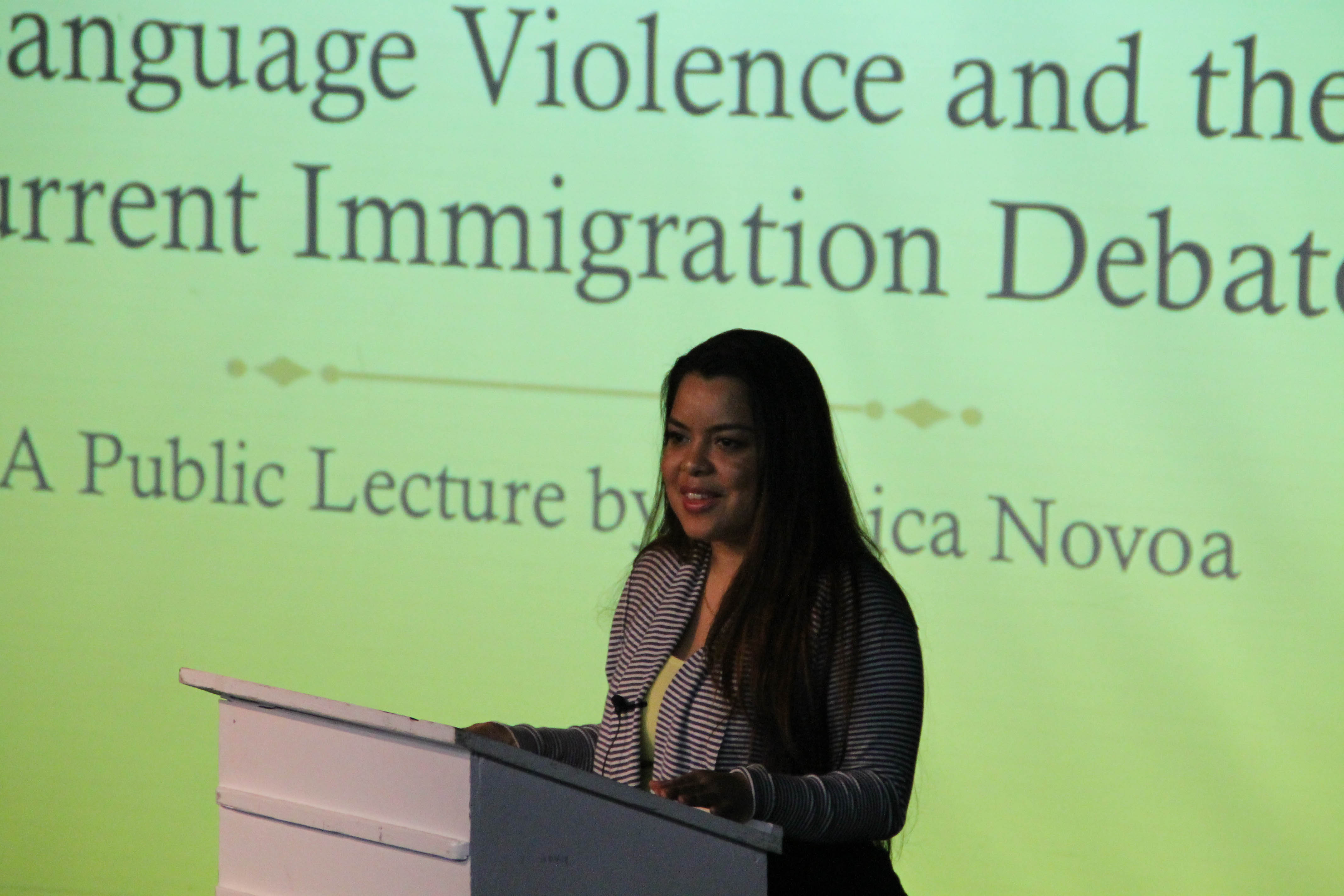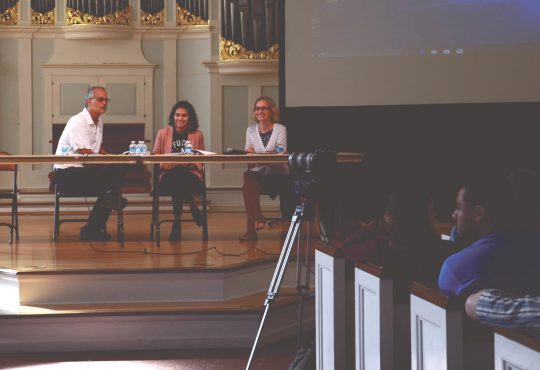
What do you call people who are in this country without proper documentation? Border-hoppers? Illegal aliens? Just plain illegals?
On Wednesday, April 30, at 5 p.m. in the University of Puget Sound’s Rausch Auditorium, Monica Novoa gave a lecture entitled “On Dropping the ‘I’ word, Language, Violence and Cultural Debate.”
A hint: the “I” word refers to “illegal.” Rausch Auditorium was filled practically to capacity with Puget Sound students of various class standing. The motivation in coming to this talk?
“I’m here for Spanish extra credit,” freshman Sam Hansen said.
Born in El Salvador and forced to migrate north to California when her parents became government targets in the 1980s, Novoa was just one of the approximately one thousand Central Americans who leave their homes to seek better lives farther north, each and every day. She was three years old.
Novoa has since grown up and gone on to be an increasingly active figure in the civil rights movement. She went to California State University at Northridge, did communications consulting in Washington D.C. and today, she works with families of deportees in New York City.
Novoa opened her lecture with a quick and well-received icebreaker about the remarkably nice weather in Tacoma, joking, “I almost skipped out.” The audience greeted this comment with laughs and some nodding.
Novoa said that using the term “illegal,” to describe undocumented immigrants from Mexico and Central America is not only dehumanizing and racist, but simply journalistically and factually inaccurate.
The campaign employs strategies of both pathos and logos to get its message across. She observed that we rarely refer to immigrants from Europe or Canada as “illegals,” and yet we almost always characterize undocumented Latino and Latina immigrants in that way.
Novoa’s power point displayed a graphic from Colorlines.com, with “Take the PLEDGE” in red, white, and electric blue. The pledge read, “I will not call any human being ‘illegal.’ The racially charged slur and related terms confuse the immigration debate, fuel violence and don’t reflect my values. I will join communities nationwide in challenging all media to do the same.”
Apparently the pledge has worked. In just three years, from September 2010 to Spring 2013, “Drop the I-Word” has convinced news outlets like The Los Angeles Times, USA Today, The San Francisco Chronicle and even The Associated Press to use terms which are less dehumanizing and more accurate than the term “illegal” to describe undocumented immigrants.
Novoa said that this was perhaps the most difficult part of the campaign. “The last thing a journalist wants is to be told how to write or what to do,” she said.
Novoa claimed that the civil rights movements of the 20th century, including the movements to de-institutionalize the words “negro” and “homosexual,” inspired “Drop the I-Word.”
She believes that the campaign is not just about “political correctness” and insists that in labeling it as such, her critics write off the movement as oversensitive and end the conversation prematurely.
She said, “[Through language], we learn who has power and who doesn’t have power.” The term “illegal” relegates undocumented persons to a subordinate position, and this early force of inferiority can have a negative affect on the self-concepts and confidence of children.
Freshman Sabrina Barnett found aspects of the lecture surprising. “It was interesting that the term illegal wasn’t just politically incorrect, but legally incorrect. She was an interesting and inspiring speaker. I thought it was going to be more the person was going to be older and have an accent and be more just saying that it was ignorant and fighting back, but she was young. And I thought it was going to be about just Mexican immigrants, but it was all immigrants,” she said.
For more about the “Drop the I-Word Campaign,” go to www.colorlines.com/droptheiword and follow @MoniNovoa on Twitter.

